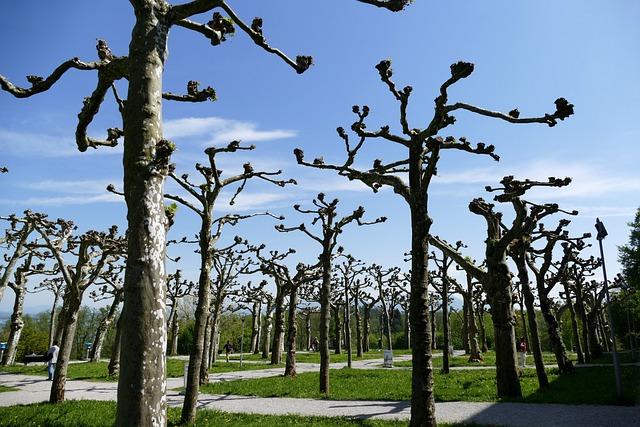Tree Symbolism in Different Cultures

Trees have long held symbolic significance in cultures around the world. Whether representing strength, wisdom, rebirth, or connection to the divine, trees have played a key role in the belief systems and traditions of various societies. In exploring the diverse meanings attributed to trees in different cultures, we gain insight into the deep-rooted symbolism and spiritual significance they hold for humanity. In various cultures around the world, trees have held significant symbolism and meaning. From the Ancient Mesopotamians who saw the Tree of Life as a representation of creation to the Celts who revered certain trees as sacred symbols, the importance of trees in different cultures cannot be understated. In Celtic culture, trees were believed to hold spiritual energy, with Druids often using them for rituals and ceremonies. Each tree was associated with different qualities and meanings.
Similarly, in Japanese tradition, the cherry blossom tree symbolizes the transience of life and the beauty of fleeting moments. The blossoming of these trees in the spring is a celebrated event, known as Hanami, where people gather to admire the cherry blossoms in bloom. This symbolizes the impermanence of life and the importance of cherishing every moment. In Native American spirituality, the Medicine Wheel represents the interconnectedness of all living beings and the harmony of the natural world. The four cardinal directions and elements are often represented by specific trees, each with their own symbolic meanings.
Q&A
Q: What is the significance of trees in different cultures?
A: Trees hold symbolic meaning in various cultures around the world, representing life, fertility, protection, wisdom, and connections to the divine.
Q: How are trees viewed in Eastern cultures?
A: In Eastern cultures such as Chinese, Japanese, and Indian, trees are seen as symbols of strength, resilience, and longevity. They are often associated with spirituality and meditation.
Q: What do trees symbolize in Western cultures?
A: In Western cultures, trees are often associated with growth, rebirth, and regeneration. They are also linked to knowledge, wisdom, and the cycles of life.
Q: Are there specific trees that hold special symbolism in certain cultures?
A: Yes, certain trees such as the oak tree in Celtic culture, the Bodhi tree in Buddhism, and the Yggdrasil tree in Norse mythology hold special significance and symbolize different aspects of life and spirituality.
Q: How are trees used in rituals and ceremonies in various cultures?
A: Trees are often used as sacred sites for rituals and ceremonies in many cultures, where prayers, offerings, and blessings are performed to honor the tree’s significance and seek spiritual guidance.
Q: How can we incorporate tree symbolism into our own lives?
A: By understanding the different meanings and symbolism of trees in various cultures, we can incorporate this knowledge into our lives by planting trees, meditating in nature, and seeking inspiration and wisdom from the beauty and strength of trees.
Conclusion
In conclusion, trees hold significant symbolism in various cultures around the world, reflecting the deep connection between nature and humanity. From the sacred trees of ancient civilizations to the symbolic representations of life and growth, trees continue to play a vital role in cultural beliefs and spiritual practices. By understanding the diverse meanings attached to trees in different cultures, we gain a greater appreciation for the universal importance of these majestic beings in our lives. Next time you see a tree, take a moment to reflect on its symbolism and the rich tapestry of cultural beliefs that have been woven around it throughout history.
Simpsons Tree Services, Servicing Melbourne’s North Eastern Suburbs
Book a quote online at www.simpsonstrees.com.au



